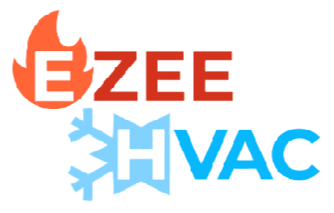
Future HVAC Technology Will Focus on Sustainability, Automation and Data

Posted on April 12, 2022
Since the first electric furnace was developed in 1861, HVAC technology has forever transformed the way we live. No longer are we huddled next to the fire to keep warm in winter or sleeping outside in the hot summer months.
The first century or so in HVAC technology was dominated by mechanical developments, but electronics have now taken center stage. Computers have enabled manufacturers to design equipment that is smaller, more efficient and effective.
Computers have opened the path to more efficient HVAC designs now, and they will dominate the industry in the future, enabling superior sustainability, cost efficiency and comfort.
“We will see larger improvements in energy efficiency over the next 15 years than we have ever seen in the history of air-conditioning – not just in peak-load improvements, but in energy efficiency throughout the year,” ASHRAE president Kent Peterson told Buildings magazine.
HVAC technology of the future will achieve sustainability, cost efficiency and enhanced comfort levels by becoming more environmentally-friendly, using automation and smart tech, and analyzing data for peak performance.
Sustainability
Sustainability has become a focus across most industries, as environmental impact takes center stage and green technology allows businesses and consumers to become greener.
Still, achieving sustainable energy through green HVAC is not without its hurdles. New technologies cost money, and most consumers aren’t prepared to fork over the extra cash necessary for sustainable systems.
This hesitation has led to less marketplace acceptance in general. HVAC technicians and manufacturers are less likely to invest in green technology and training if they don’t feel it will sell.
Slowly but surely, however, consumers are learning that green HVAC is not only sustainable, but saves on energy bills and maintenance costs – enough through the lifetime of a unit, to more than pay for the extra initial costs.
“Home comfort systems will be more environmentally friendly as ozone-depleting substances like R22 are phased out by the Environmental Protection Agency by 2020,” Service Experts CEO Scott Boose told Future of Everything. “Systems will be more energy efficient and cost less to run with less sound pollution and they will tap alternative energy sources like solar or hybrid. More households will use ENERGY STAR(r)-rated heating and cooling equipment.”
HVAC systems of the future will use technologies such as more geothermal heat pumps, solar power, smart thermostats and even ice-powered air-conditioning to reduce their energy use and overall environmental impact. Other future HVAC technologies, such as automation and data analysis, will improve the sustainability of heating, ventilation and air conditioning.
Automation
Consumers love the convenience offered by automation and smart technology, but they also make HVAC more efficient in both their use of energy and costs. Whereas traditional thermostats automated heating and cooling activation based on room temperature, modern designs are adding a whole new set of components.
Smart thermostats – available to add to traditional HVAC systems – allow users to adjust their settings while away from home. Many can even provide monthly reports on energy use so users can decide how to more efficiently use their systems.
Motion-activated air conditioning, however, takes automation to the next level. The systems use sensors that turn themselves off and on based on movement in the home, saving money when nobody is there. Likewise, smart ventilation systems allow users to separately control the temperature of each room or area of their home.
“Everyone wants to obtain the ultimate in-home comfort and organization, and home automation systems make it that much easier by putting the controls right at homeowners’ fingertips,” Top Notch Heating president and owner Mike Brosseit told Future of Everything.
“I think we’ll see them become even more advanced than we can imagine right now, with the ability to make precise adjustments based on a homeowner’s preferences without requiring them to do anything,” Brosseit added.
Data Analysis
It wasn’t long ago that consumers scoured their monthly utility bills, looking for ways to cut costs. Today, data analytics software can do the job for them.
The analytics market is expected to reach $71.1 billion by 2022, and the HVAC industry is not exempt from its impact.
Software programs like those offered by Green Building Studio and Energy Gauge can help property owners project which HVAC systems will be the most energy- and cost-efficient and provide options for them based on their prior use and other factors.
Property and building managers are now using data analytics to make educated decisions about system maintenance, cutting costs and wasting less energy associated with unnecessary equipment operation, inefficient strategies and faulty equipment.
“Consumers will have the ability to perform an energy load calculation of their residence and select the proper size of equipment needed to cool the home efficiently,” Best Home Services co-owner Keegan Hodges told Future of Everything.
“Easy to use consumer tools will provide details based upon mathematical formulas to calculate CFM and air flow management for air duct upgrades and replacements; along with plenums if needed.”
Original article: https://www.hvacinformed.com/news/house-outsourced-hvac-management-co-1598538360-ga.1649680921.html
Get a Quote
We'd love to hear from you
Get in Touch
Office location
4387 Coopers creek Dr, Smryna, Georgia, 30082Give us a call
(678) 294-2366Send us an email
[email protected]
